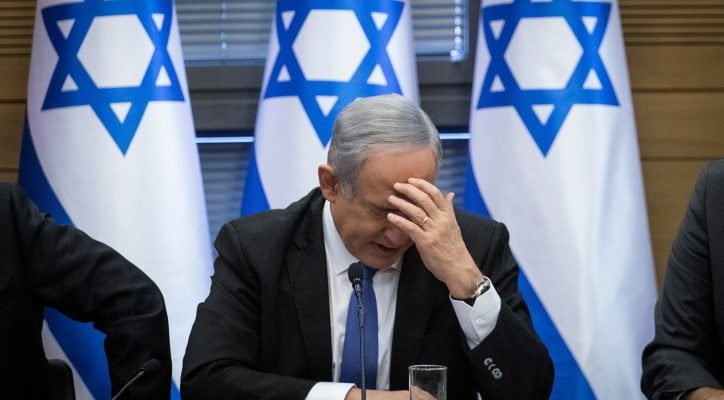“This is not a matter of right or left. This is not a matter of politics. This is an obligation placed on us, the people of law enforcement and upon me personally as the one at its head,” said Attorney-General Avichai Mandelblit.
By AP
Israel’s attorney general on Thursday formally charged Prime Minister Benjamin Netanyahu in a series of corruption cases, throwing the country’s paralyzed political system into further disarray and threatening the long-time leader’s grip on power.
Capping a three-year investigation, Attorney General Avichai Mandelblit charged Netanyahu with fraud, breach of trust and accepting bribes in three different scandals. It is the first time a sitting Israeli prime minister has been charged with a crime.
Mandelblit rejected accusations that his decision was politically motivated and said he had acted solely out of professional considerations.
“A day in which the attorney general decides to serve an indictment against a seated prime minister for serious crimes of corrupt governance is a heavy and sad day, for the Israeli public and for me personally,” he told reporters.
“This is not a matter of right or left. This is not a matter of politics,” he said. “This is an obligation placed on us, the people of law enforcement and upon me personally as the one at its head.”
The indictment does not require Netanyahu to resign, but it significantly weakens him at a time when Israel’s political system appears to be limping toward a third election in under a year.
Netanyahu has called the allegations part of a witch hunt, lashing out against the media, police, prosecutors and the justice system. He planned a statement later Thursday.
The decision comes at a tumultuous time for the country. After an inconclusive election in September, both Netanyahu and Gantz, leader of the Blue and White party, have failed to form a majority coalition in parliament. It is the first time in the nation’s history that that has happened.
The country now enters an unprecedented 21-day period in which any member of parliament can try to rally a 61-member majority to become prime minister. If that fails, new elections would be triggered.

